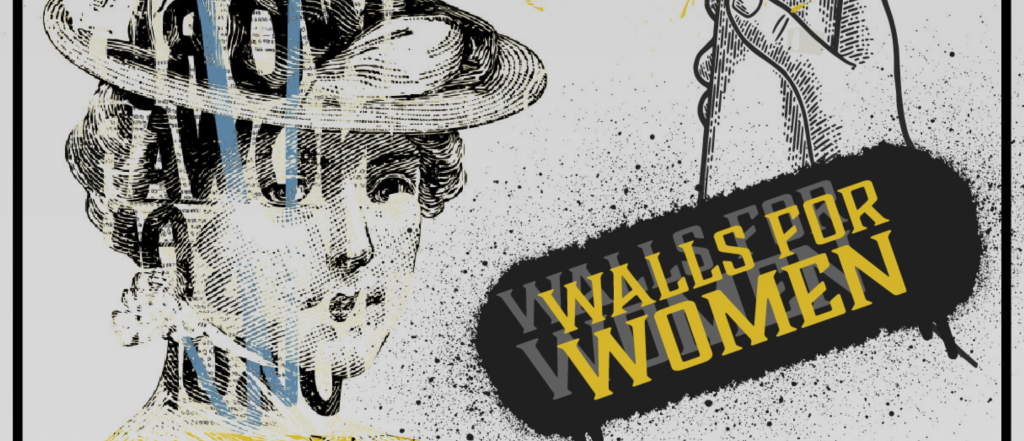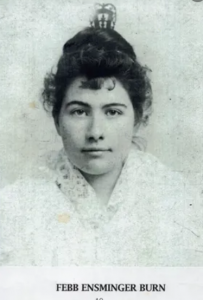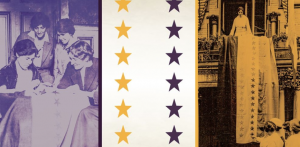The Battle for Equality Is Not Over
NBC Today Show
The appointment of Kamala Harris, the first woman of color to run on a major party’s presidential ticket, is a “breakthrough in the struggle for equality first demanded more than a century ago by the Suffragists fighting for the 19th Amendment,” reports Rehema Ellis of NBC News. “But the amendment didn’t give all women the right to vote, which is why we call this a commemoration, not a celebration. Black women had to continue their fight until the 1965 Voting Rights Act, and that fight is still not over. In certain communities, voter suppression is real – it just looks different in 2020 than it did 50 or 100 years ago. The right of Black women right to participate in Democracy has involved struggle every step of the way. But given the opportunity, Black women show up at the polls in higher numbers than other voting blocs.”
WATCH VIDEO
The Suffrage Movement Is Still Unfinished
The 19th
“We’re in a year where there are folks who would like to do a little more than celebrate, and that requires too often muting these stories [of women of color] and turning down the volume on the fact that racism runs through this movement in every chapter of the story, and ultimately leaves Black women to build their own movement for voting rights,” says Nikole Hannah-Jones, Pulitzer Prize-winning reporter for The New York Times Magazine and creator of the 1619 Project.
Another myth Hannah-Jones cites is the idea that Black women weren’t politically engaged. Even before 1920, Black women in some states, including California, Illinois and New York, were becoming part of party machines and building political power. After the 19th Amendment was ratified, Black women all over the country mobilized to “test the amendment,” Jones said. Some succeeded more than others. For example, nearly every Black woman registered to vote in St. Louis in 1920, but in Daytona, Florida, the Ku Klux Klan showed up to intimidate Black women away from the polls.
READ FULL ARTICLE
Michelle Obama: We Cannot Take the Right to Vote for Granted
Harper’s Bazaar
“It took decades of marching, organizingand standing up to folks who thought that democracy should be of, by and for only some of the people, And then we had to fight for decades more to ensure that women of color could cast their ballots as well. These victories were hard won. But the struggle was worth it, because our foremothers knew that our vote is our voice. It gives us the power to determine the course of our lives and the direction of our country. And this year in this election, we cannot take that power for granted. We all know that some people out there are just hoping that we decide to give up our power and stay home on Election Day. But we can’t let that happen. Not this year, not any year. We owe it to ourselves, and to our kids and grandkids, to make our voices heard. That’s what our mothers and grandmothers did for us. And now it’s our turn.”
READ FULL ARTICLE
The Woman’s Vote: Controversial Long After Amendment Passed
Time Magazine
“Several states reacted actively rejected the Amendment in 1919 and 1920. Eleven states ratified it after it had already been certified in 1920—but not all at once. It would be fifty years before South Carolina, Georgia and Louisiana would do so, with Mississippi becoming the last to join in 1984. From state to state, several factors were at play. In Virginia, which ratified in 1952, the Virginia Association Opposed to Woman’s Suffrage distributed pamphlets that argued that the vote would actually have a negative impact on the everyday lives of women, that it was the “vanguard of socialism” and that it would undermine the role of husbands in the family. Similarly, in Alabama, which ratified in 1953, the Women’s Anti-Ratification League put forward the idea that Alabama women should be more concerned about raising families than participation in civic life, and in Florida which ratified in 1969, opposition from newspapers and politicians to suffrage was fierce.”
READ FULL ARTICLE
Women in the United States Are Still Denied the Right to Vote
The New Republic
“One hundred years on from ‘woman suffrage,’ and women in the United States are still denied the right to vote, whether through outright disenfranchisement for past involvement with the criminal legal system, voter intimidation, bogus claims of ‘voter fraud,’ or the realization—perhaps logical—that there isn’t much worth voting for in a political system that has so often failed and excluded them. The Nineteenth Amendment, under which no state may abridge or deny the right to vote based on sex, was ratified one hundred years ago this August. The women who remain locked out of the franchise are the fractured legacy of a fractured movement.
READ FULL ARTICLE



